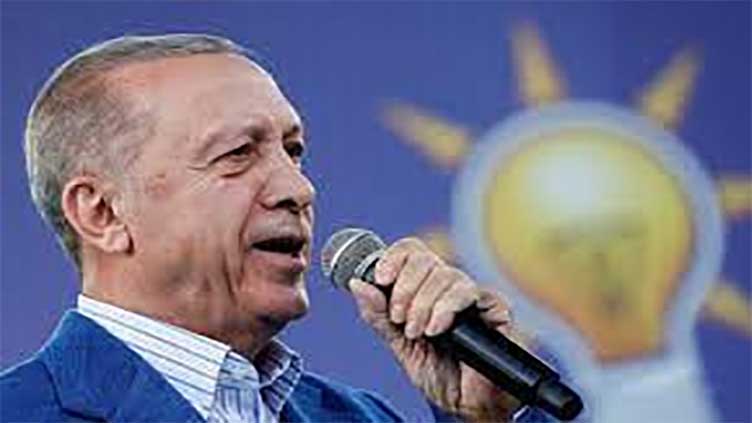Erdogan pays homage to Islamic idol Adnan Menderes on eve of Turkey vote

World
Erdogan pays homage to Islamic idol Adnan Menderes on eve of Turkey vote
(AFP) - Turkish President Recep Tayyip Erdogan pays homage on Saturday to his executed Islamic predecessor in an attempt to rally his conservative base on the eve of a historic runoff vote.
Erdogan’s visit to Istanbul’s Adnan Menderes mausoleum takes him back to the man he cited when he called early polls for May 14 in a bid to ease his way to an unprecedented third decade of rule.
Menderes was tried and hanged one year after the military staged a coup in 1960 to put Turkey back on a more secular course.
Erdogan survived a putsch attempt against his own government in 2016.
The 69-year-old told his followers in January that he wanted to continue Menderes’s fight for religious rights and nationalist causes in the officially secular but overwhelmingly Muslim republic of 85 million people.
Erdogan paid a similarly symbolic visit to Istanbul’s iconic Hagia Sophia mosque on the eve of the first round.
His conversion of the ancient seat of Eastern Christianity into a mosque in 2020 further elevated his hero status among poorer and more rural voters who have helped keep him in power since 2003.
Erdogan ended up beating secular opposition leader Kemal Kilicdaroglu by nearly five percentage points two weeks ago.
But his failure to top the 50 per cent threshold set up Turkey’s first election runoff and underscored the gradual ebbing of support for its longest-serving leader.
‘They are afraid’
Kilicdaroglu has focused his campaign on more immediate concerns as he tries to come from behind and bring back power to the secular party that ruled Turkey for most of the 20th century.
He used a late-night TV interview on Friday to accuse Erdogan’s government of unfairly blocking his mass text messages to voters.
“They are afraid of us,” the 74-year-old former civil servant said.
The episode highlights what opposition supporters — many of them liberal secularists who live in big cities such as Istanbul and Izmir — have been saying for years.
While Turkey’s polls were judged to be free on election day, observers say they were hardly fair.
“These were competitive but still limited elections,” the Organisation for Security and Cooperation in Europe (OSCE) election observer mission’s chief Michael Georg Link said after the first round.
“The criminalisation of some political forces, including the detention of several opposition politicians, prevented full political pluralism and impeded individuals’ rights to run in the elections,” Link said.
Creating fake news
Erdogan’s first decade in power was distinguished by strong economic growth and warm relations with Western powers that elevated his global status and domestic support.
His second began with a corruption scandal and soon descended into a political crackdown and years of economic turmoil that erased many of the early gains.
Erdogan’s consolidation of power included a near-complete monopolisation of the media by the government and its business allies.
Reporters Without Borders (RSF) estimated that Erdogan received 60 times as much airtime on the TRT Haber state broadcaster as Kilicdaroglu in April.
“They have taken over all the institutions,” Kilicdaroglu said in his television interview. “We have to rebuild this state.” Erdogan used his own TV interview on Friday to attack Western coverage of the election.
“Western media have channelled all their attention to us. They are more interested in the elections in Turkey than in their own countries,” Erdogan said. “But they are always creating fake news.”
Economic peril
The vote is being accompanied by growing alarm about the fate of Turkey’s beleaguered lira and the stability of its banks.
Erdogan forced the central bank to follow through on his unconventional theory that lowering interest rates bring down inflation.
The exact opposite has occurred.
Turkey’s annual inflation rate touched 85 per cent last year while the lira entered a brief freefall.
The lira has been holding remarkably steady during the campaign period — a sign that the government is plowing vast sums into market interventions.
The central bank’s net foreign currency holdings — a key measure of financial health — have dropped into negative territory for the first time since 2002.
Economists feel that Erdogan’s government will need to reverse course and sharply raise rates or stop supporting the lira if it wants to avoid a full-fledged crisis after the vote.
“If Kilicdaroglu were to win, he would immediately establish a more austere monetary policy than that of Erdogan,” Moneyfarm investment house’s Giorgio Broggi said.


